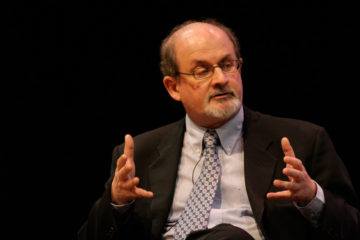Faisal Devji in the Boston Review:
 The brutal attack on novelist Salman Rushdie at a public lecture in Chautauqua, New York, last month has prompted a flood of revealing responses from liberals in the West. In the New Yorker, Adam Gopnik decried the enduring “terrorist” threat to “liberal civilization” in rhetoric that might well have been issued by the administration of George W. Bush. (Even law enforcement has declined to link the assault to terrorism.) Meanwhile, Graeme Wood, writing in the Atlantic, likens criticism of texts to complicity in assassination, while Bernard-Henri Lévy’s predictable diatribe against fanaticism calls for a “campaign” to “ensure” that Rushdie wins this year’s Nobel Prize in Literature—a cause New Yorker editor David Remnick has now joined, too. If it shocks us that the novelist was attacked after so long, it should also shock us that this commentary looks much the same as it did when his life was first threatened more than thirty years ago.
The brutal attack on novelist Salman Rushdie at a public lecture in Chautauqua, New York, last month has prompted a flood of revealing responses from liberals in the West. In the New Yorker, Adam Gopnik decried the enduring “terrorist” threat to “liberal civilization” in rhetoric that might well have been issued by the administration of George W. Bush. (Even law enforcement has declined to link the assault to terrorism.) Meanwhile, Graeme Wood, writing in the Atlantic, likens criticism of texts to complicity in assassination, while Bernard-Henri Lévy’s predictable diatribe against fanaticism calls for a “campaign” to “ensure” that Rushdie wins this year’s Nobel Prize in Literature—a cause New Yorker editor David Remnick has now joined, too. If it shocks us that the novelist was attacked after so long, it should also shock us that this commentary looks much the same as it did when his life was first threatened more than thirty years ago.
The defining feature of this genre of liberal exasperation is a dogmatic repudiation of history. In place of careful analysis of particular (and therefore changing) circumstances, it relies on stereotype and anecdote to depict a metaphysical conflict between religious fanaticism and liberal tolerance—one that is always and everywhere the same.
More here.
